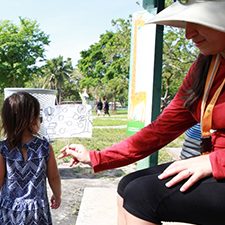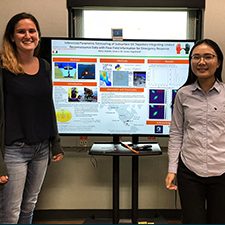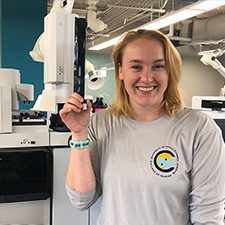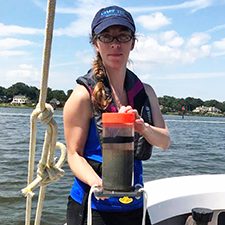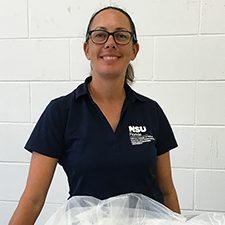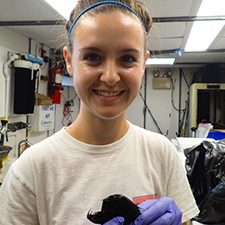The GoMRI Scholars Program recognizes outstanding graduate students and the vital research they contribute to improve understanding about the damage, response, and recovery following the Deepwater Horizon oil spill. The Scholars Program honors and builds community for these next generation of ocean science professionals.
These students serve as essential team members for much of the research underway and bring creativity, curiosity, and energy to the GoMRI scientific program. They represent the successful manifestation of the second GoMRI Legacy Goals, building scientific and intellectual capacity for response and mitigation strategies for future oil spill events.
Candidates for this program must be graduate students who have participated in a GoMRI-funded project for at least one year, whose work is primarily funded by GoMRI, and who are working on a dissertation or thesis based on GoMRI-funded science. On a semi-annual basis, the lead Principal Investigators of GoMRI-funded projects nominate students who meet these criteria.
Following confirmation, each scholar will receive a letter of congratulations declaring the title GoMRI Scholar along with a certificate from Dr. Rita Colwell, GoMRI Research Board Chair. GoMRI will collect information about these scholars and their careers and accomplishments for longitudinal studies and program impacts.
Below are GoMRI Scholars Highlight Stories that have been featured on the web site. For a complete list of scholars, click on the ‘People’ tab for any funded projects to view the list of GoMRI Scholars with affiliation for that project.
Deepwater Horizon oil impacted over 1,700 km of Gulf of Mexico coastline and prompted 89 beach closures, largely due to uncertainty about health risks associated with oil contamination.
Hydrocarbons from oil slicks floating on the ocean’s surface can be aerosolized by evaporation, breaking waves and bursting bubbles.
Marine protists are single-celled planktonic creatures that form the base of the marine food web and perform important ecosystem services, including driving photosynthesis and the carbon and nitrogen cycles.
Hydrocarbon-degrading microbes living in ocean environments consumed and metabolized oil droplets following Deepwater Horizon, which significantly influenced the oil’s fate in the Gulf of Mexico.
Oil spilled in the ocean can sink to the seafloor due to its high density or by attaching to floating particulate matter, as happened during the Marine Oil Snow Sedimentation and Flocculent Accumulation (MOSSFA) event following Deepwater Horizon.
Marine ecosystems provide many valuable resources for humans, including seafood and petroleum. Conservation policies that protect marine ecosystems, especially pollution and petroleum-related policies, depend on accurate scientific data about the ways different marine species experience pollution.
Oil that enters a marine environment can attach to particulate matter suspended in the water and form oil particle aggregates, which then sink to the seafloor.
Coral reefs provide food, shelter, and habitat to thousands of organisms living in the Gulf of Mexico. However, their vulnerability to physical and toxicological damage increases corals’ risk during environmental disturbances, particularly in shallow water where dangers from coastline proximity include wastewater pollution, moving sediment, salinity and nutrient changes, scavengers, and boating and fishing activities.
The microbial community living in fish’s gastrointestinal tracts, also called the gut microbiome, are vital to their developing immune systems and can influence behaviors such as foraging.
The ocean’s deep-pelagic ecosystem is the largest and least understood habitat on Earth. In the Gulf of Mexico, it was the largest ecosystem affected by the Deepwater Horizon incident.

